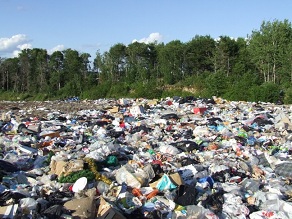Condemnation is the process whereby the government initiates lawful proceedings for the taking of private property. In North Carolina, this is done utilizing the proceedings outlined by Chapters 40A and 136 of the General Statutes. In order to take private property, the government must pay “just compensation.” If the government takes private property without initiating condemnation proceedings or paying fair compensation, you may file an action for inverse condemnation. In fact, if the government has taken any action which has significantly reduced the market value of your real estate, you may, depending upon the circumstances, have an action for inverse condemnation. For a free consultation and evaluation of your potential inverse condemnation claim, contact the Raleigh condemnation litigation attorneys of Maginnis Howard at (919) 526-0450.
Inverse condemnation is essentially a process to force the government to exercise condemnation proceedings when it has failed to do so. It requires a showing that there has been a taking of private property for public use or benefit. The authority for an inverse condemnation action against a local government lies in N.C.G.S. § 40A-51: “[i]f property has been taken by an act or omission of a [local government condemnor] and no complaint containing a declaration of taking has been filed the owner of the property, may initiate an action seeking compensation for the taking.” Inverse condemnation actions may also be filed against utility companies and state entities such as the Department of Transportation.
The circumstances under which an inverse condemnation action will lie are countless. There does not necessarily need to be a direct taking. Examples of circumstances leading to inverse condemnation actions include:
(1) Odors from landfills affecting use of private property;
(2) Flooding of private property caused by actions of the government; and
(3) Adoption of ordinances affecting use of private property.
These are simply illustrative. For an evaluation of whether the government’s actions affecting your property could support an inverse condemnation action, you need to speak with a knowledgeable attorney.
The Raleigh condemnation attorneys of Maginnis Law offer free consultations for all new clients, including clients with condemnation and inverse condemnation needs. All inverse condemnation cases are handled on a contingency basis. Our fee is based upon the amount paid by the condemnor for the taking. You pay no attorneys’ fees unless the government compensates you for the damage to your property.
Maginnis Howard regularly represents clients in the Triangle area, including: Raleigh, Durham, Chapel Hill, Cary, Apex, Clayton, Holly Springs, Morrisville, Wake Forest, and the surrounding counties. To speak with an inverse condemnation attorney, call us at (919) 526-0450. You may also email our condemnation lawyers using our contact page.







